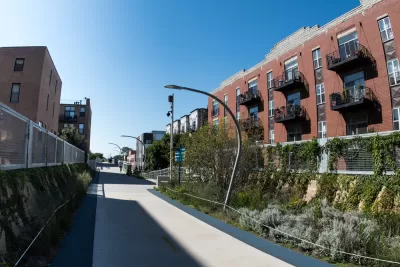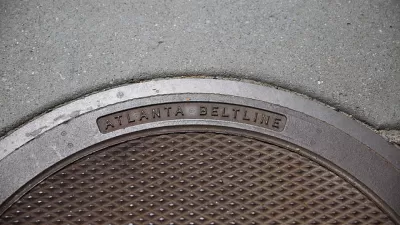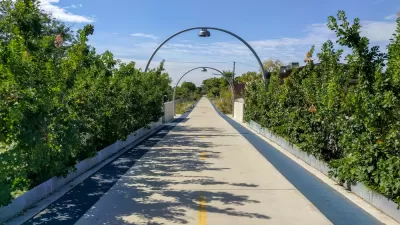Chicago and Atlanta both approved development moratoriums in areas surrounding new urban amenities this year. Other cities could soon add to the number.

"Seeking to curtail gentrification and displacement, Atlanta and Chicago put construction and demolition moratoriums in place early this year," according to an article by Haisteen Willis that examines these two examples as evidence of larger trends in the policy response to gentrification in neighborhoods facing new development interest.
The Chicago and Atlanta examples both have linear parks on old rail rights-of-way in common—the Beltline in Atlanta and the 606 in Chicago.
"In Atlanta, construction permits were banned until Dec. 4 to slow investor activity near the western portions of the Beltline, a trail system under construction that is laid over old railroad tracks and driving up the value of real estate everywhere it winds," according to Willis.
"Chicago made a similar move, prohibiting until February 2021 demolition of old two- and four-flats, which were being torn down in favor of large single-family houses, in the western portions of the 606 trail." (Planetizen picked up news of the Chicago moratorium when it was still a proposal in the City Council.)
According to Willis, neighborhoods in New York City and Gainesville, Florida could soon also add development moratoriums in response to housing projects proposed in low-income neighborhoods of color.
While local neighborhood groups and some politicians support the moratoriums in the name of preserving community identity and preventing displacement caused by rising rents and taxes, developers and construction companies say that moratoriums create too much drag on an already sluggish economy.
FULL STORY: Building bans and affordable housing: A construction conundrum

Alabama: Trump Terminates Settlements for Black Communities Harmed By Raw Sewage
Trump deemed the landmark civil rights agreement “illegal DEI and environmental justice policy.”

Planetizen Federal Action Tracker
A weekly monitor of how Trump’s orders and actions are impacting planners and planning in America.

How Atlanta Built 7,000 Housing Units in 3 Years
The city’s comprehensive, neighborhood-focused housing strategy focuses on identifying properties and land that can be repurposed for housing and encouraging development in underserved neighborhoods.

In Both Crashes and Crime, Public Transportation is Far Safer than Driving
Contrary to popular assumptions, public transportation has far lower crash and crime rates than automobile travel. For safer communities, improve and encourage transit travel.

Report: Zoning Reforms Should Complement Nashville’s Ambitious Transit Plan
Without reform, restrictive zoning codes will limit the impact of the city’s planned transit expansion and could exclude some of the residents who depend on transit the most.

Judge Orders Release of Frozen IRA, IIJA Funding
The decision is a victory for environmental groups who charged that freezing funds for critical infrastructure and disaster response programs caused “real and irreparable harm” to communities.
Urban Design for Planners 1: Software Tools
This six-course series explores essential urban design concepts using open source software and equips planners with the tools they need to participate fully in the urban design process.
Planning for Universal Design
Learn the tools for implementing Universal Design in planning regulations.
Caltrans
Smith Gee Studio
Institute for Housing and Urban Development Studies (IHS)
City of Grandview
Harvard GSD Executive Education
Toledo-Lucas County Plan Commissions
Salt Lake City
NYU Wagner Graduate School of Public Service





























